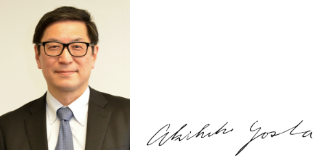Greetings

The Japanese Society for Immunology was established in 1971 and celebrated its 50th anniversary last year. This year, as a first step toward the next 50 years, the 51st Annual Meeting of the Japanese Society for Immunology will be held in Kumamoto (Kumamoto Castle Hall) in December 2022. The new SARS-CoV2 coronavirus infection (COVID-19) has had a serious impact not only on our lives but also on research and academic activities. Immunity is a major defense against viruses and an understanding of the immune system is required for overcoming this pandemic. We would like to discuss how researchers and academic societies should fight against COVID-19 and what measures should we take for the post-Corona era. Therefore, we have set the theme of this conference as “Supernova-Immunology: Science against-Corona and post-Corona” to seek a new, deeper, more advanced, and more accessible immunology for the next 50 years. In this conference, I would like to share with you the hope of unraveling and overcoming immune-related diseases, including COVID-19 in the city of Kumamoto, which suffered from a big earthquake in 2016 but is powerfully recovering now.
The situation surrounding COVID-19 has raised a serious concern about science in Japan, which became extremely clear during the vaccine development process. Although several excellent papers related to COVID-19 have been reported from Japan, we have fallen far behind overseas in terms of the number of research papers. However, of note, the importance of understanding immunity against infectious diseases, including vaccines, antibody cocktails, and cytokine storms, has been widely recognized. Although we advocated “science against and after COVID-19” in our meeting slogan, I believe that all of us involved in immunology in Japan should work together to overcome not only COVID-19 but also other infectious diseases, cancers, immunological disorders, and aging-related diseases and dementia.
Conversely, it is known that COVID-19 causes severe symptoms mainly in the elderly and those with basal diseases, while young people experince a mild or asymptomatic disease. However, we should still notice that the so-called “coronavirus crisis” caused by COVID-19 has affected young people more than the elderly economically as well as intellectually. Thus, even though the situation of infection in winter 2022 is unpredictable, we are planning to hold this meeting in a “hybrid” format, of course, taking into consideration the safety and security of the participants as much as possible. The meeting will be held in a face-to-face way along with online sessions. I believe that scientific meetings should be a place where researchers can exchange new knowledge and generate new ideas through interaction with each other. Rather than simply returning to the before-corona era, we will diligently seek a new style of academic meeting that will evolve to meet the needs of post-Corona science.
The Annual Meeting of the Japanese Society for Immunology is the most important meeting for us, where more than 2,000 immunologists from Japan and around the world gather every year and discuss their latest research development. As in previous years, we are planning theme-based workshops, cutting-edge international symposia by leading researchers from Japan and abroad, and various educational and technical seminars. Particularly, we will have an international symposium on SARS-CoV-2, as we did last year and the year before, to affirm to what degree humankind has come in understanding and controlling this virus, and to clarify future issues. Following last year’s symposium, we have planned to hold an open call international symposium organized by (young) researchers These symposia aim to support the spontaneous and ambitious efforts of young researchers and encourage our society’s next generation of researchers. I believe that it is time for the Japanese Society of Immunology to shift from a top-down to a bottom-up fashion. Additionally, we are planning to hold an international symposium jointly with the Japanese Society of Allergy and Allergy and the Japanese College of Rheumatology.
In a super-aging society like Japan, diseases are becoming more complex and diverse than ever experienced. Moreover, the recent pandemic has increased social demands for immunological research. I wish to extend the field of immunology, improve the understanding of the principles of life, and seek a new era of immunology in this meeting. We sincerely look forward to seeing you at Kumamoto.
The 51st Annual Meeting of the Japanese Society for Immunology
President Akihiko Yoshimura
Keio University School of Medicine
